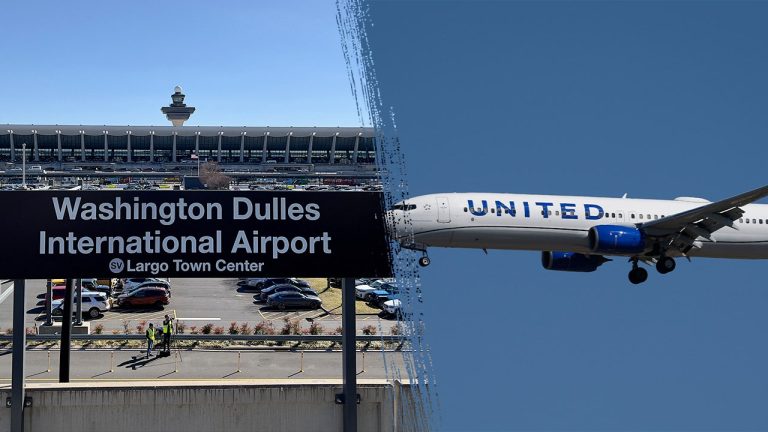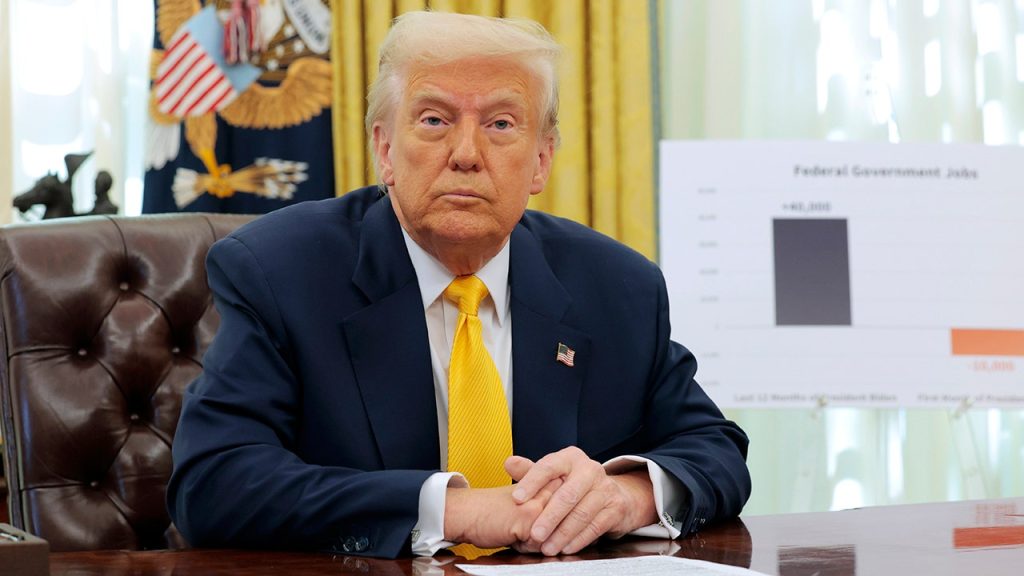
UBS Managing Director Jason Katz and Pence Wealth Management CIO Dryden Pence weigh in on the S&Ps record lows and President Donald Trump’s tariff plans on “The Claman Countdown.”
President Donald Trump’s tariff plans are moving forward by levying taxes on imported goods that economists warn will lead to price increases for consumers that could push inflation higher and complicate the Federal Reserve’s efforts to stabilize the pace of price growth.
The two primary metrics for inflation – the consumer price index (CPI) and the personal consumption expenditure (PCE) index – are both above the Fed’s target rate of 2%. Headline CPI was 2.8% in February, while PCE was up 2.5%. Inflation data for March is due to be released this month.
With inflation remaining above the Fed’s target and central bank policymakers monitoring for data showing inflation is subsiding to 2%, any uptick in inflation data over the coming months could delay interest rate cuts.
Tariffs are taxes on imported goods that are paid by the importing firm, which in this case are U.S. companies. In most cases, importers pass the cost of tariffs on to consumers in the form of higher prices, though they may bear some of the cost through a diminished bottom line. In rare cases, exporters may lower their prices to help importers, though their willingness to do so depends on the availability of alternative buyers for the product.
WHAT TO KNOW ABOUT PRESIDENT TRUMP’S ‘LIBERATION DAY’ TARIFFS
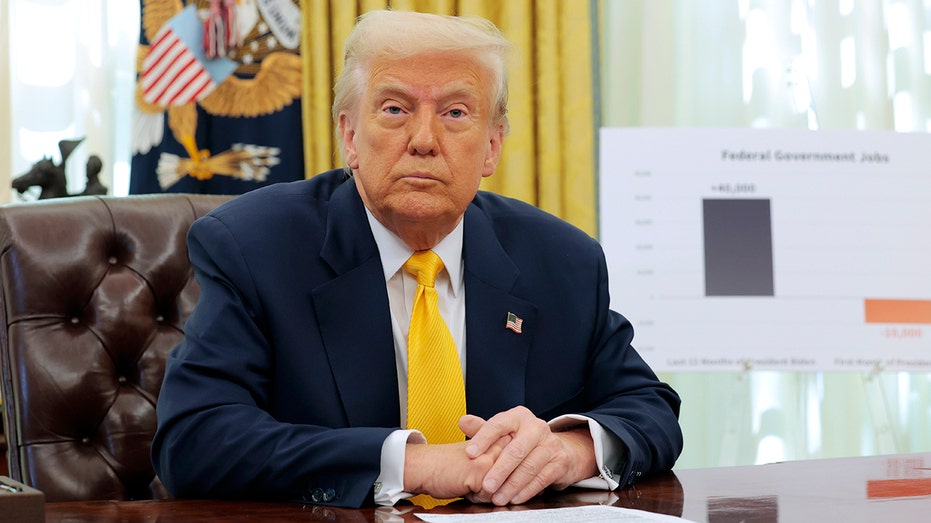
President Donald Trump has announced a variety of tariffs, including a blanket 10% tariff on top of reciprocal tariffs along with separate auto tariffs. (Anna Moneymaker/Getty Images)
With Trump’s plans for a 10% tariff on all imports plus additional reciprocal tariffs on U.S. trading partners, as well as sector-specific tariffs such as the 25% tariff on imported vehicles and auto parts, either in force now or taking effect soon, price hikes related to tariffs could soon be reflected in the inflation data the Fed is monitoring.
Ryan Young, senior economist at the Competitive Enterprise Institute, told FOX Business that he expects it will be “about six weeks” before price increases due to tariffs start impacting inflation data.
“Assuming Trump goes through with the auto and reciprocal tariffs in early April, prices should go up right away for many goods. That will then show up in April’s CPI and PCE releases,” which are due to be released in May, he said.
“Each tariff will also cause a one-time jolt to inflation indicators. So if it increases April’s indicators, it won’t show up in May’s. Similarly, if the tariffs are withdrawn in the future, that will cause a one-time fall in CPI and PCE rather than a continuous fall over time,” Young added.
FEDERAL RESERVE LEAVES KEY INTEREST RATE UNCHANGED AMID UNCERTAINTY OVER ECONOMY, INFLATION
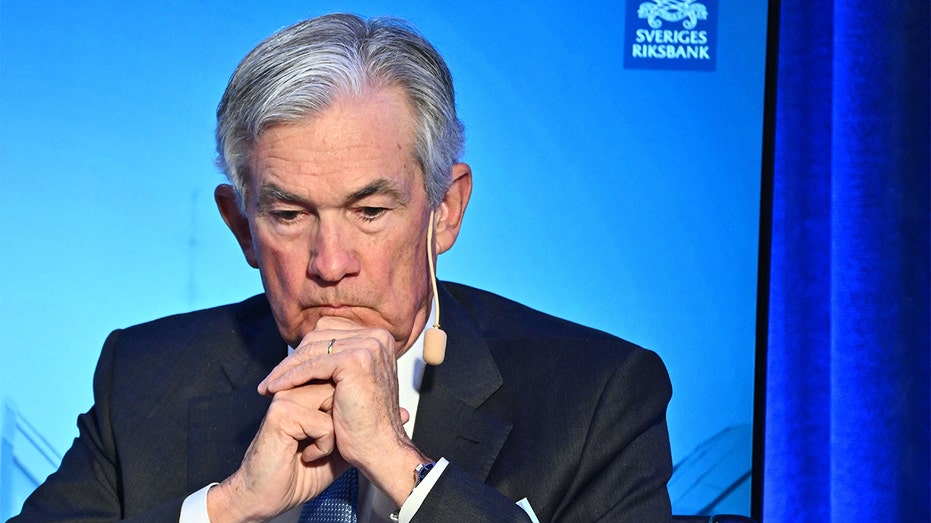
Fed Chair Jerome Powell said the central bank will be monitoring for signs of tariffs contributing to a rise in inflation data. (CLAUDIO BRESCIANI/TT News Agency/AFP via Getty Images)
Trump’s 25% tariffs on imported vehicles and auto parts are due to take effect on April 3, and the auto tariffs are likely to be passed on to consumers quickly. An analysis by J.P. Morgan found that “given strong pricing power, automakers will be able to pass on most of the tariffs” and that those auto tariffs “should boost vehicle prices by about 5%,” which they added would be on top of previously announced tariffs.
“It appears the tariffs will be effective next week, so we think the increases will be apparent quite soon. We expect that the rise in inflation will squeeze real disposable income growth to below 1% next quarter, presenting a material headwind to consumption growth,” the analysts wrote.
TRUMP SAYS HE ‘COULDN’T CARE LESS’ IF FOREIGN AUTOMAKERS RAISE PRICES OVER TARIFFS: ‘WE HAVE PLENTY’
J.P. Morgan found that given the U.S. imported about $469 billion in vehicles and auto parts – about half of which came from Canada and Mexico – it would result in a tax increase of $60 billion to $100 billion per year.
The Anderson Economic Group released an analysis that found the tariffs on imported vehicles and auto parts would raise the cost of the cheapest American cars by an additional $2,500 to $5,000, with some imported models seeing a price hike of up to $20,000. It estimated that the total impact on consumers in the first full year would be $30 billion.
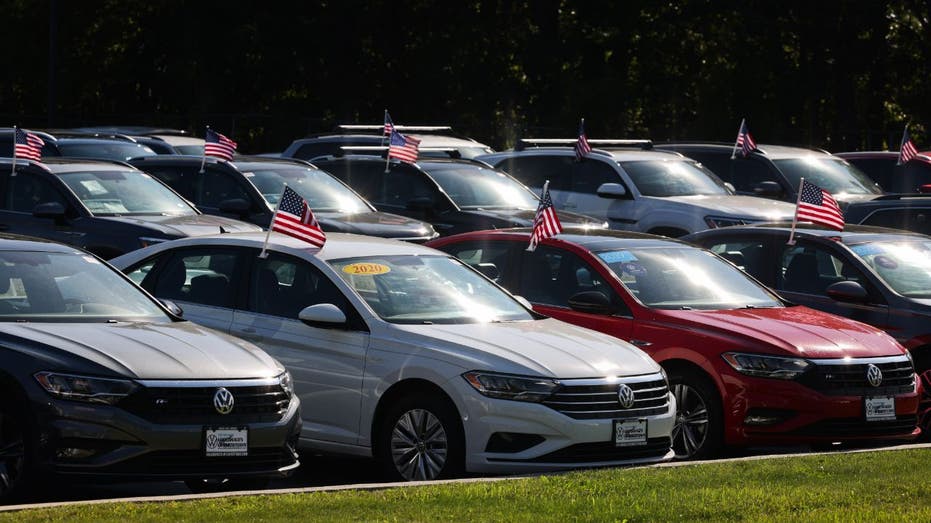
Car prices are expected to rise in response to President Trump’s tariffs on imported autos and auto parts. (Steve Pfost/Newsday RM via Getty Images)
Tax Foundation senior economist Alex Durante wrote in an analysis that “while more tariffs are likely to raise prices for imported goods, how they will affect the overall price level and inflation rate depends on how the Federal Reserve responds.”
“The price level wouldn’t directly increase in response to tariffs – if businesses or consumers have to pay more for tariffed goods or higher-priced domestic substitutes, then they have less income left to spend elsewhere – prices and incomes in other sectors would fall elsewhere,” he wrote.
“However, if the U.S. imposes a large enough tariff, the resulting reduction in economic activity would also entail a meaningful increase in unemployment. That would run counter to the Federal Reserve’s mandate of full employment and prompt them to change monetary policy to raise the price level,” Durante added. “Rather than a rise in unemployment, we would get a rise in the price level.”
GET FOX BUSINESS ON THE GO BY CLICKING HERE
“Under either scenario, businesses and workers in the United States would be worse off than if the tariff had not been imposed. The bottom line is that contrary to President Trump’s claims, Americans will bear the costs of the next trade war in the form of lower incomes as tariffs cause prices of imported goods to rise,” he wrote.



